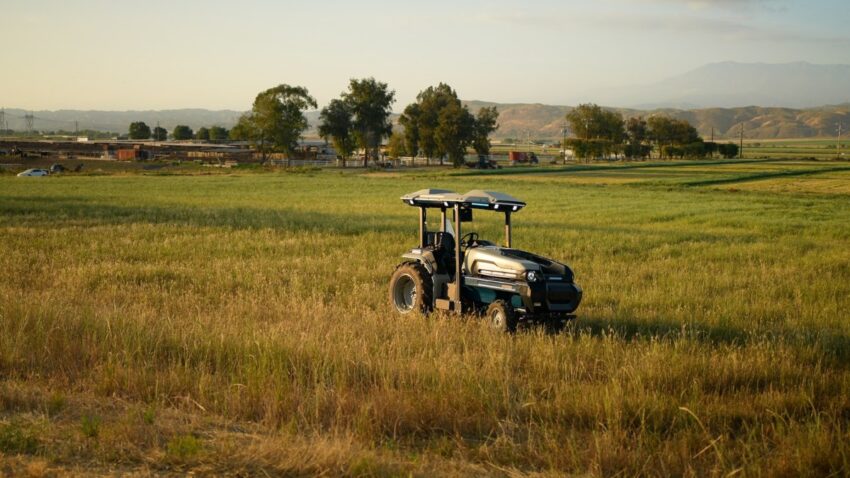
monarch tractor sued over tractors that were Burks Tractor, an Idaho-based dealership, has initiated legal action against Monarch Tractor, alleging breach of contract and warranty violations due to the company’s tractors being “unable to operate autonomously.”
monarch tractor sued over tractors that were
Background of the Case
Monarch Tractor, a California startup, has positioned itself as a pioneer in the agricultural technology sector, focusing on the development of autonomous tractors. These tractors are designed to enhance farming efficiency by automating various tasks, thus reducing labor costs and increasing productivity. However, the recent lawsuit from Burks Tractor raises serious questions about the reliability and functionality of Monarch’s products.
According to the complaint filed by Burks Tractor, the dealership purchased ten Monarch tractors, which were marketed as capable of operating autonomously. However, the dealership claims that these tractors have failed to meet the promised specifications, resulting in significant operational issues. The lawsuit highlights that the tractors are not only unable to perform autonomously but are also described as “defective,” which has led to considerable frustration for the dealership and its customers.
Details of the Allegations
Breach of Contract
The primary allegation in the lawsuit revolves around breach of contract. Burks Tractor contends that Monarch Tractor failed to deliver products that conformed to the agreed-upon specifications. The dealership asserts that the tractors were sold under the premise that they would operate autonomously, a feature that is crucial for modern agricultural practices. The inability of the tractors to fulfill this promise has led to claims that Monarch has not upheld its contractual obligations.
Warranty Violations
In addition to breach of contract, Burks Tractor is also alleging violations of warranty. The dealership claims that the tractors purchased were not only defective but also failed to meet the standards set forth in Monarch’s warranty agreements. This aspect of the lawsuit raises important questions about the accountability of manufacturers in the agricultural technology sector, particularly regarding the promises made to customers about product performance.
Implications for Monarch Tractor
The lawsuit poses significant challenges for Monarch Tractor, which has been striving to establish itself in a competitive market. The allegations could tarnish the company’s reputation and undermine consumer confidence in its products. If the court finds in favor of Burks Tractor, it could set a precedent that affects Monarch’s business practices and its relationships with other dealerships and customers.
Furthermore, the lawsuit may have broader implications for the agricultural technology industry as a whole. As more companies venture into the realm of autonomous farming equipment, the need for transparency and accountability becomes increasingly critical. The outcome of this case could influence how manufacturers approach product development, marketing, and customer relations in the future.
Stakeholder Reactions
The legal action has elicited a range of reactions from various stakeholders in the agricultural and technology sectors. Farmers and agricultural professionals have expressed concern over the reliability of autonomous technology, particularly when it comes to essential equipment like tractors. Many are questioning whether the technology is ready for widespread adoption, especially if companies like Monarch are unable to deliver on their promises.
Dealerships like Burks Tractor are also voicing their frustrations. They rely on the credibility of manufacturers to provide products that meet the needs of their customers. If a company fails to deliver, it not only affects the dealership’s reputation but also its bottom line. The lawsuit underscores the importance of accountability in the supply chain, particularly in an industry that is increasingly reliant on advanced technology.
Market Context
The agricultural technology market has seen rapid growth in recent years, driven by advancements in automation and artificial intelligence. Companies are racing to develop innovative solutions that can help farmers increase efficiency and reduce costs. However, this race to innovate can sometimes lead to overselling capabilities, as seen in the case of Monarch Tractor.
As the market evolves, it is crucial for companies to ensure that their products meet the expectations set forth in marketing materials and sales agreements. The lawsuit against Monarch serves as a reminder that accountability and transparency are essential for long-term success in the agricultural technology sector.
Future Considerations
As the case unfolds, it will be important to monitor how Monarch Tractor responds to the allegations. The company may need to reassess its product development and marketing strategies to ensure that it can meet customer expectations. Additionally, the outcome of the lawsuit could prompt other manufacturers to evaluate their own practices, particularly regarding warranty agreements and product specifications.
For Burks Tractor, the lawsuit may serve as a catalyst for change in how dealerships approach their relationships with manufacturers. It highlights the need for clear communication and accountability in contractual agreements, which could lead to more robust partnerships in the future.
Conclusion
The lawsuit filed by Burks Tractor against Monarch Tractor raises critical questions about product reliability and accountability in the agricultural technology sector. As the industry continues to evolve, the outcome of this case could have far-reaching implications for manufacturers, dealerships, and farmers alike. Stakeholders will be watching closely to see how this situation unfolds and what it means for the future of autonomous farming technology.
Source: Original report
Was this helpful?
Last Modified: November 19, 2025 at 4:39 am
6 views















